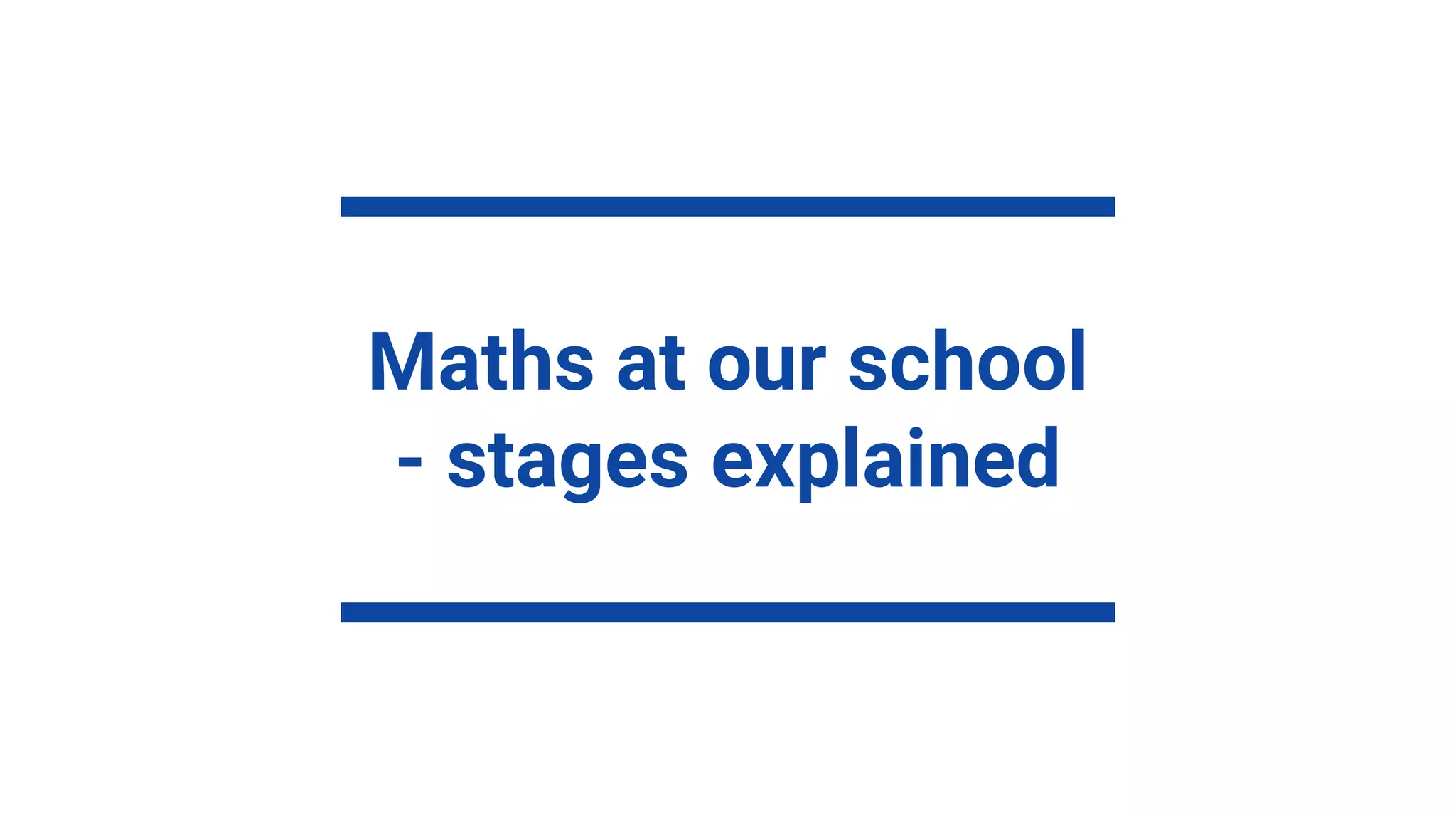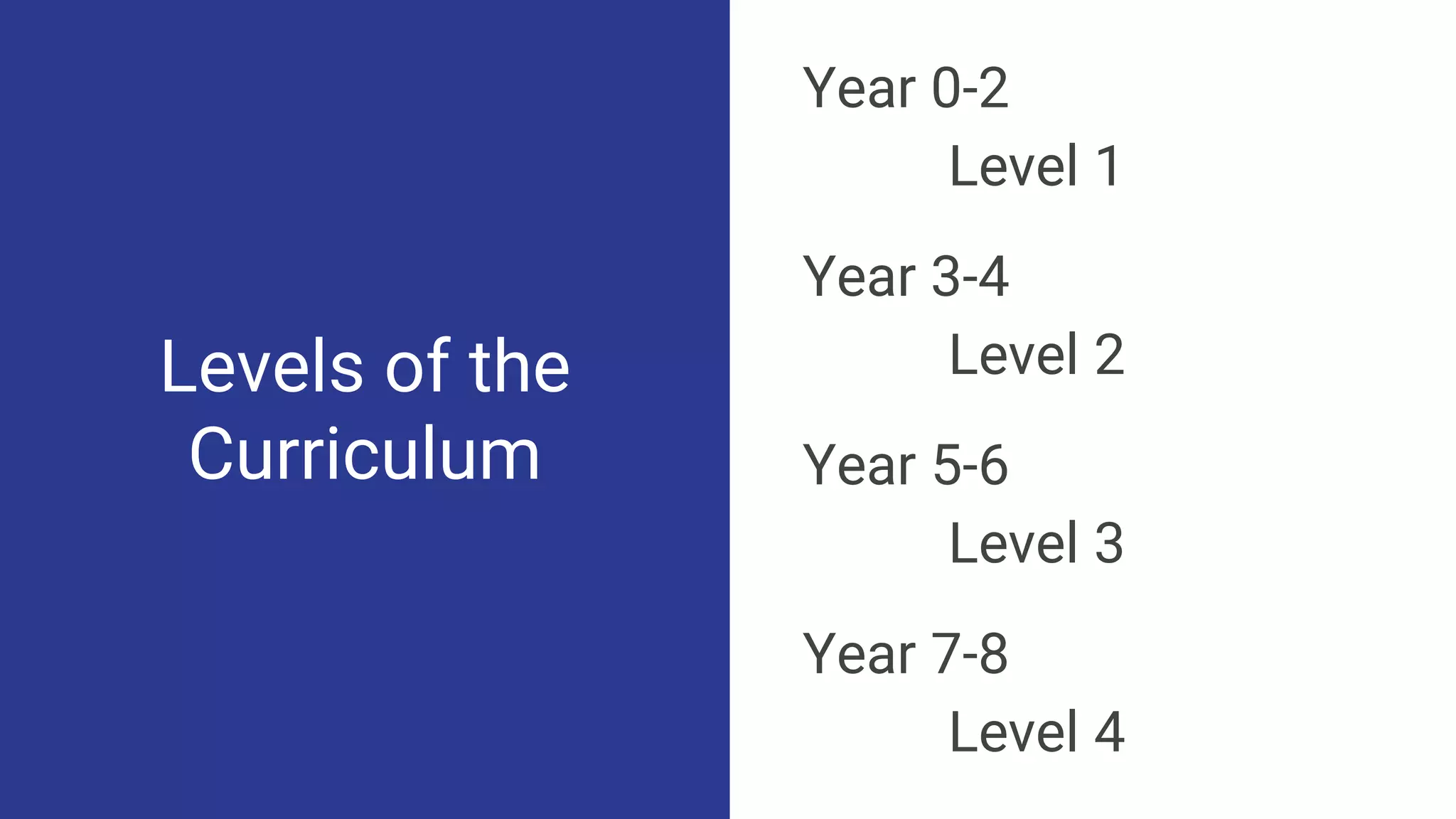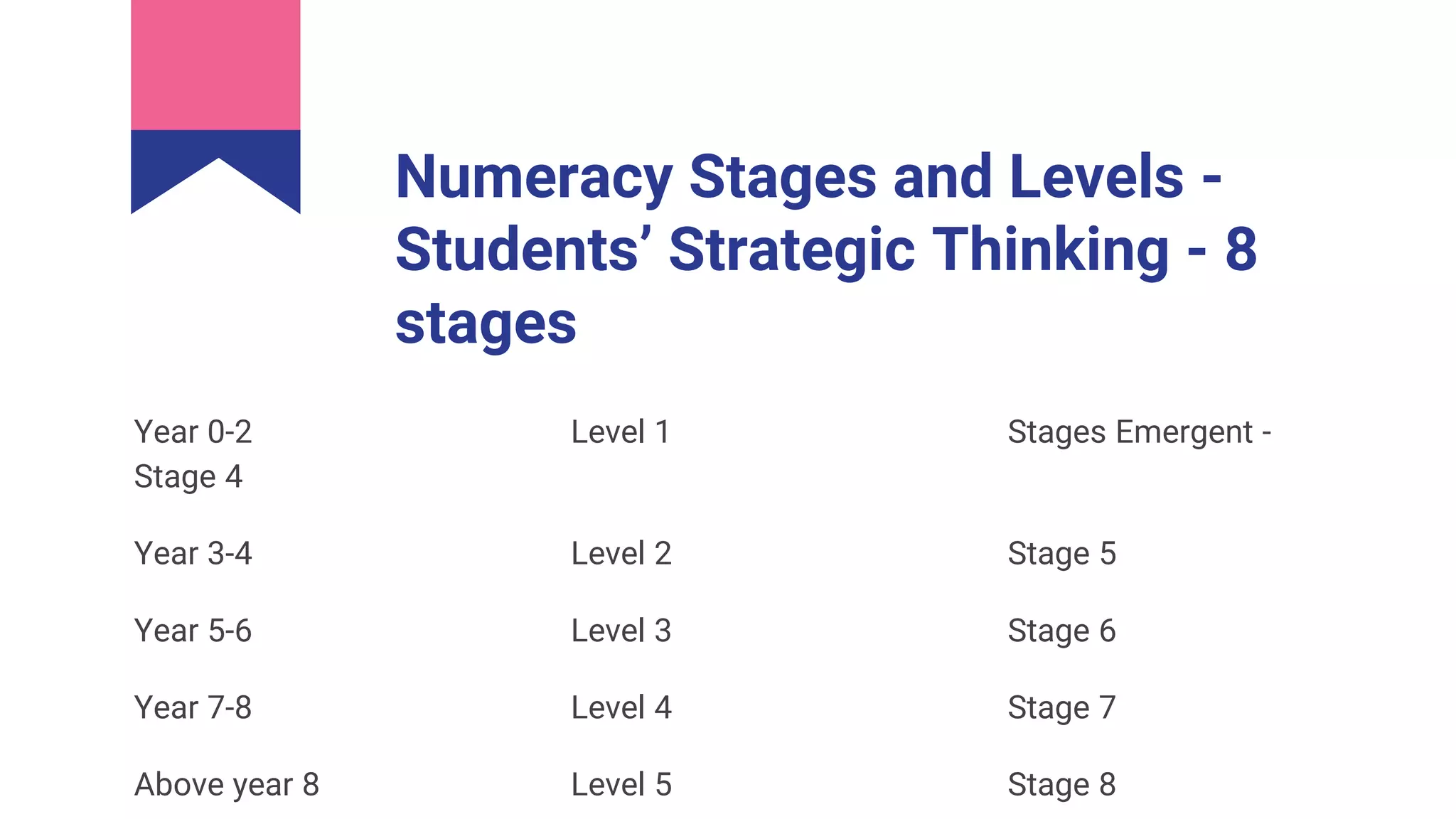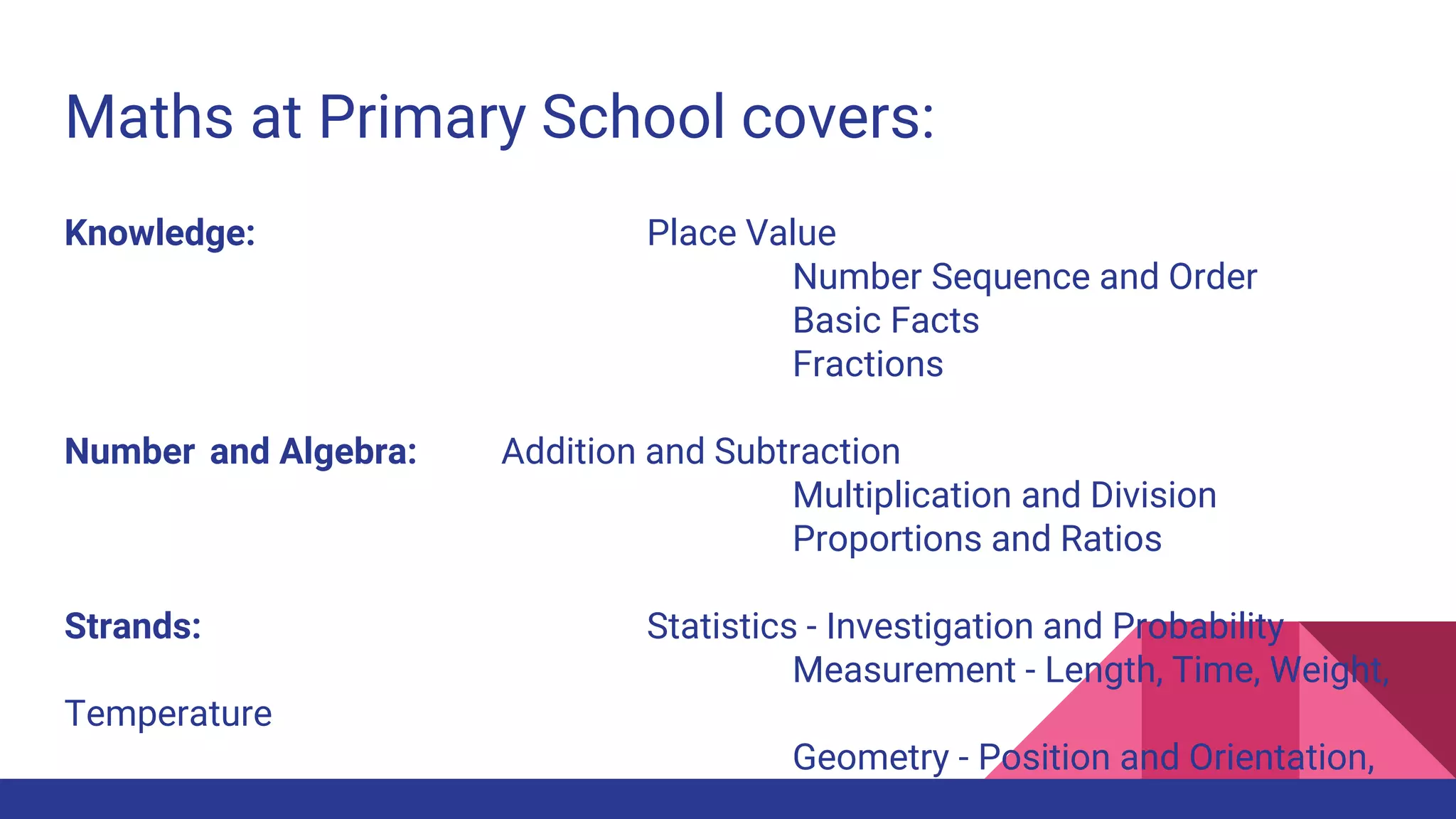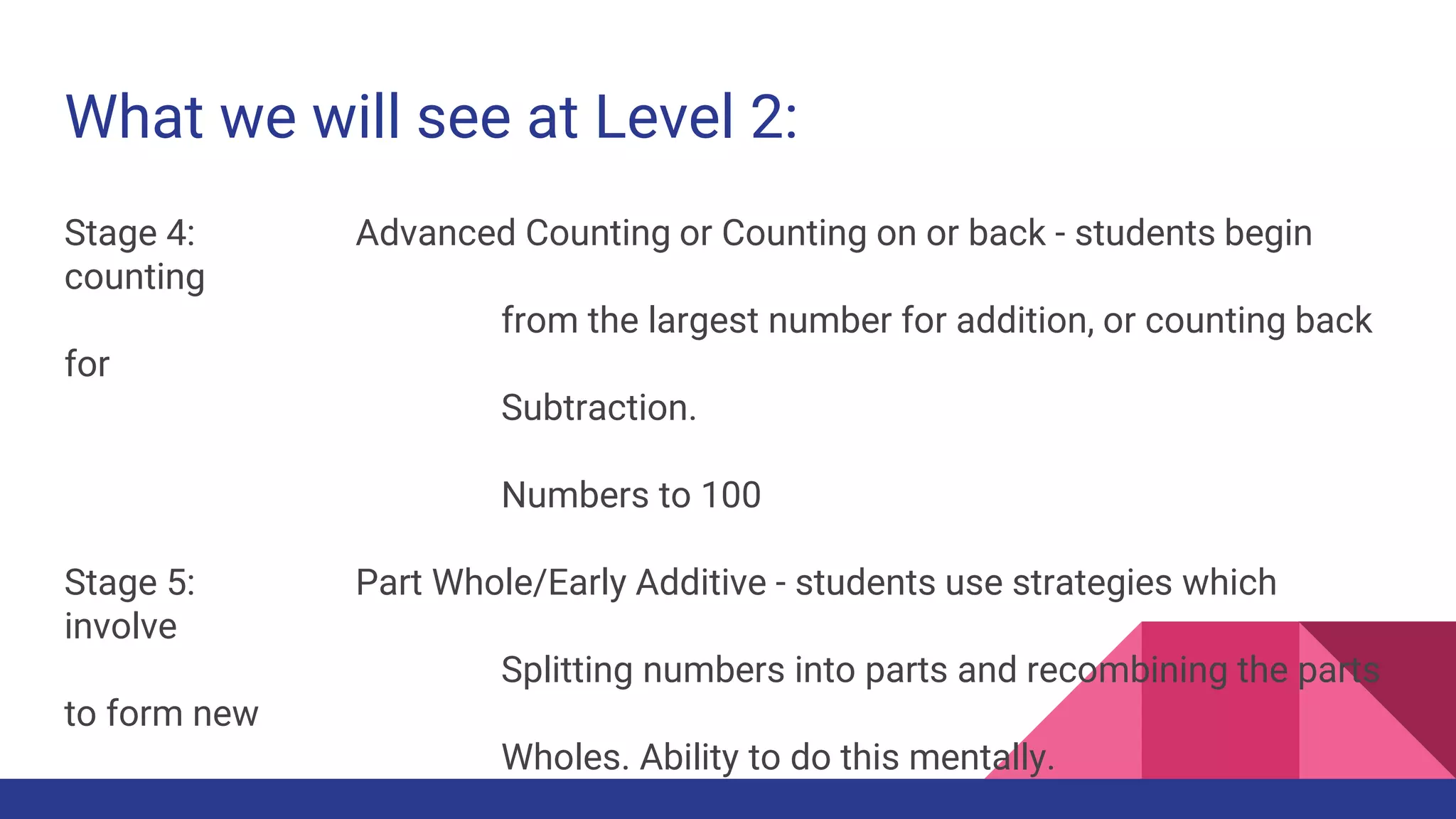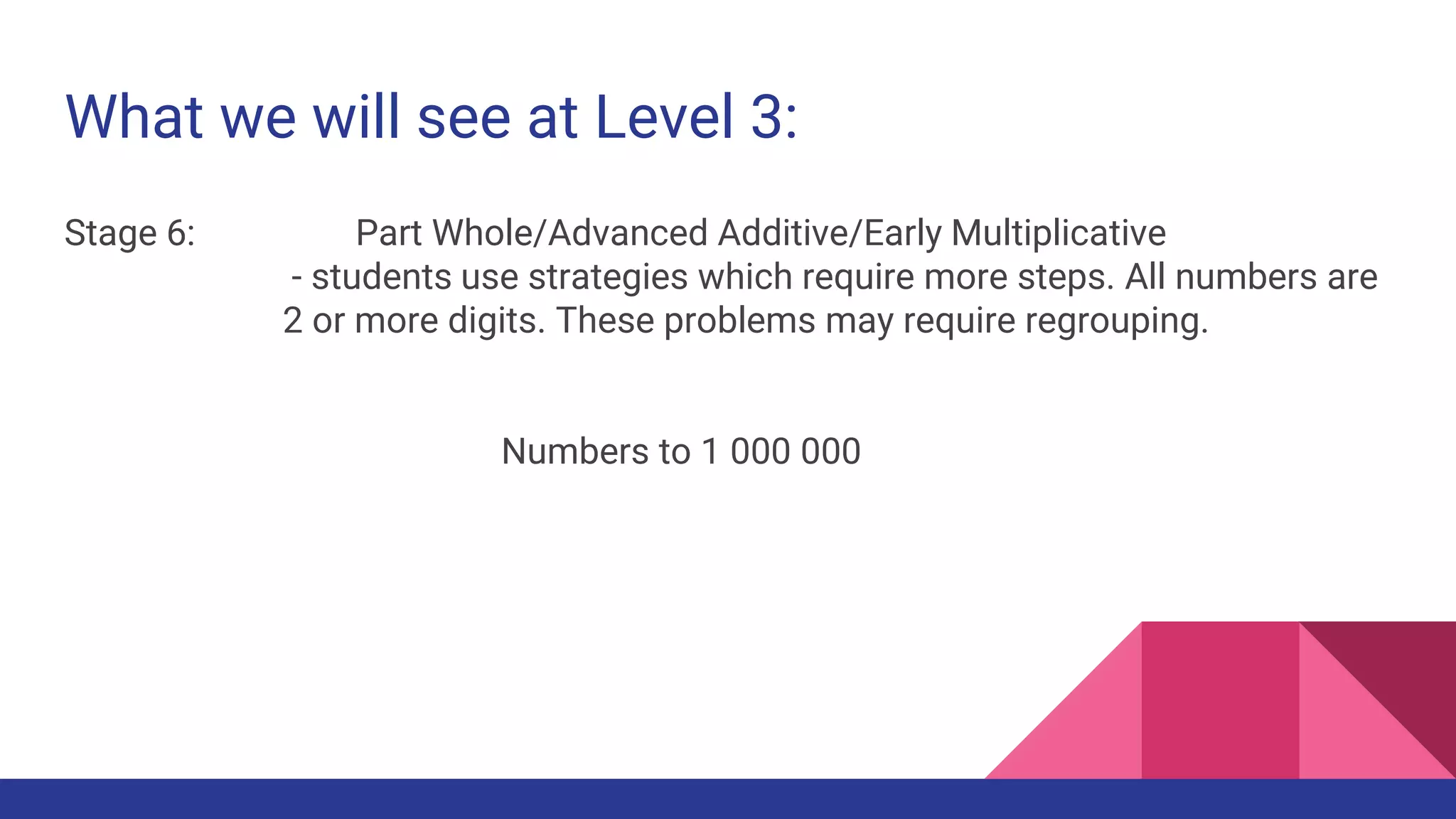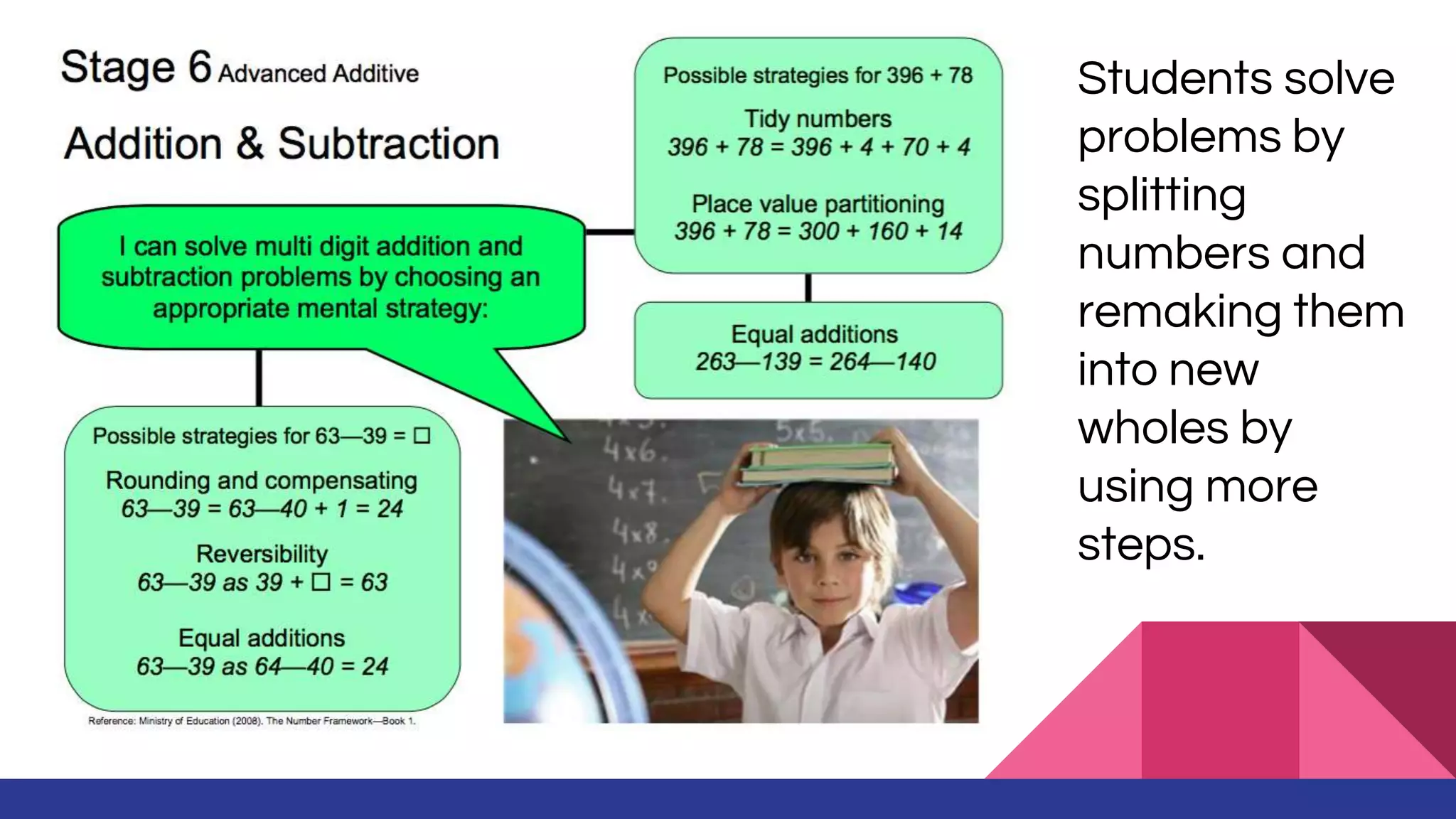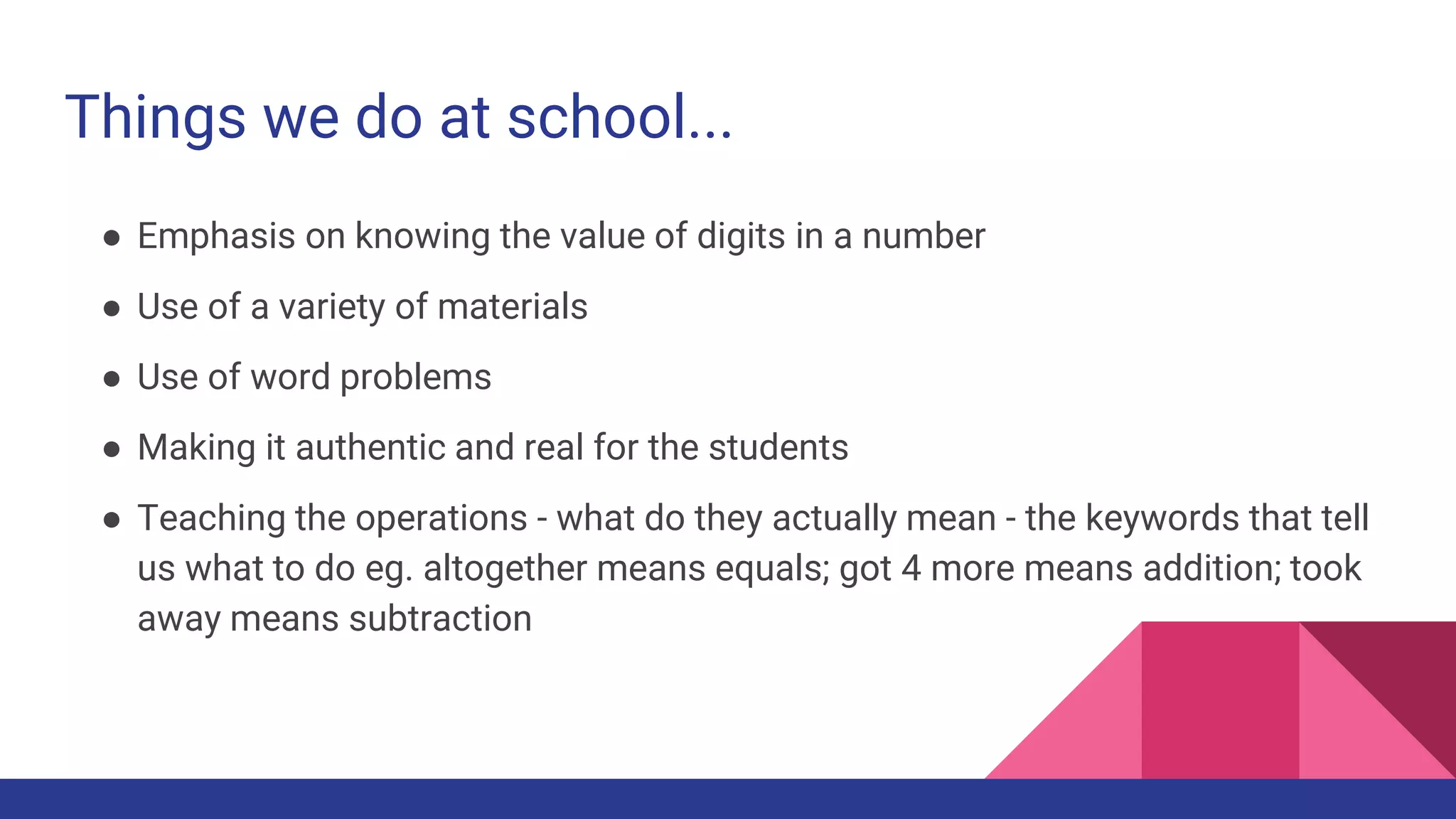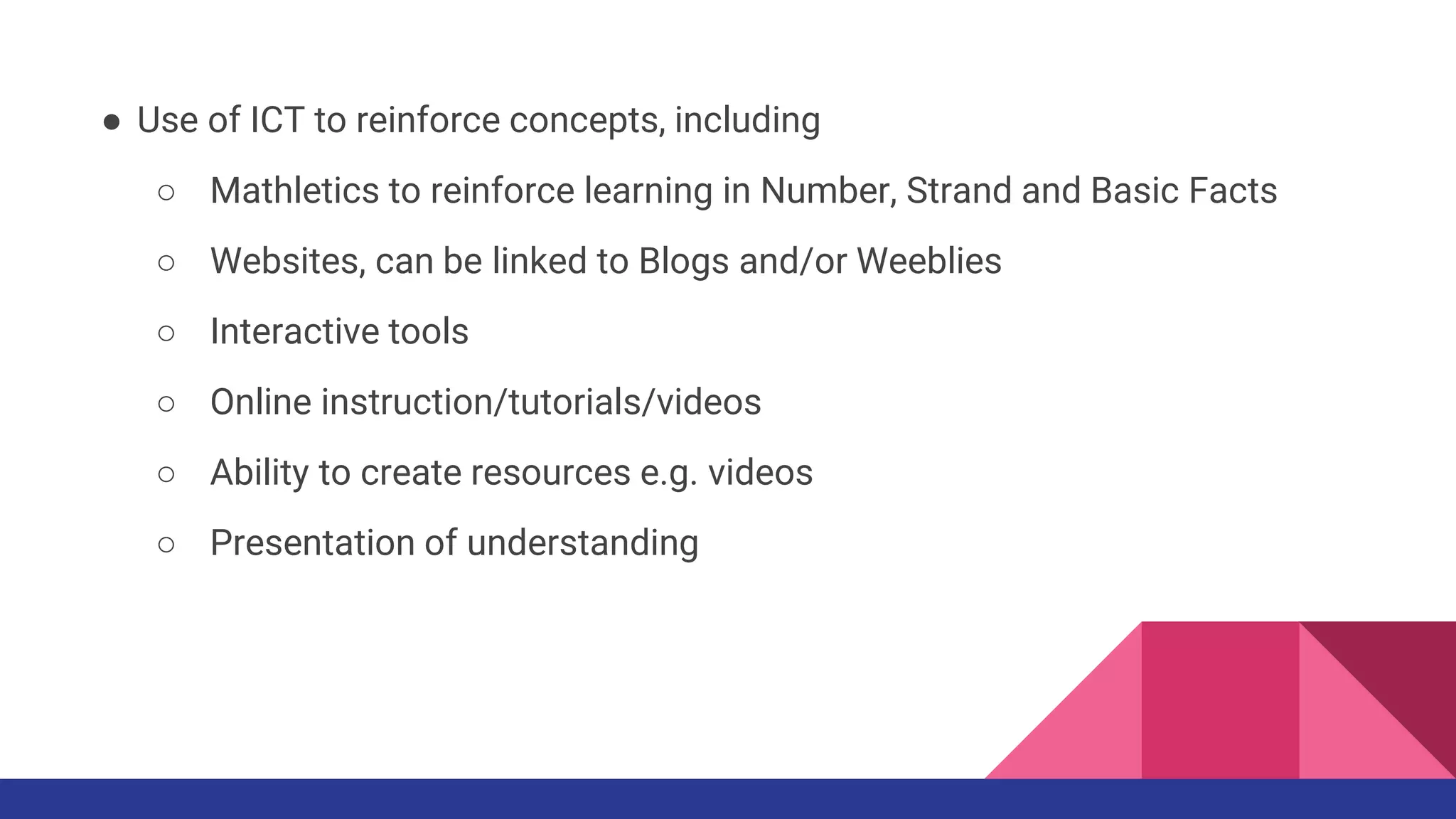This document summarizes the math curriculum at the school from years 0-8. It is divided into 4 levels that cover different stages of strategic thinking. Level 1 covers years 0-2 and focuses on counting skills. Level 2 covers years 3-4 and introduces addition, subtraction and place value concepts. Level 3 covers years 5-6 and involves more advanced additive and early multiplicative strategies. Level 4 covers years 7-8 and focuses on proportional reasoning with multi-digit numbers and decimals. The document also outlines basic fact stages and how math is taught with a focus on place value, real-world problems, and the use of technology.
